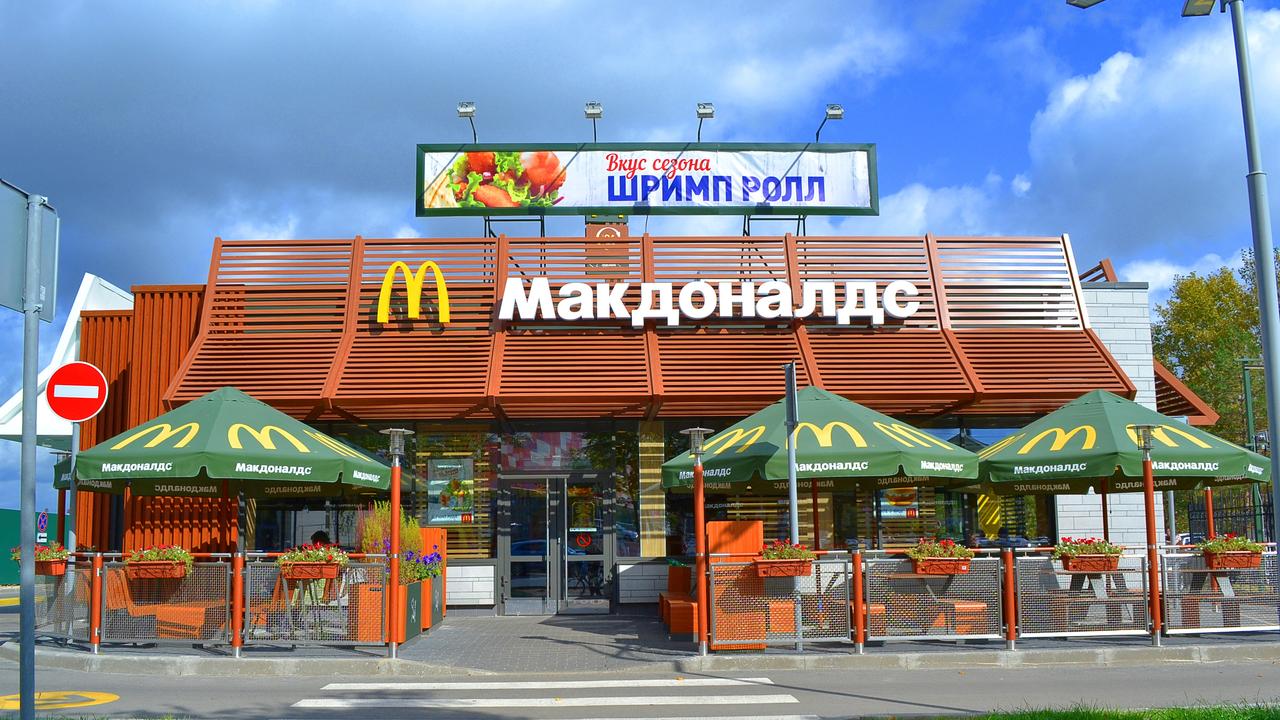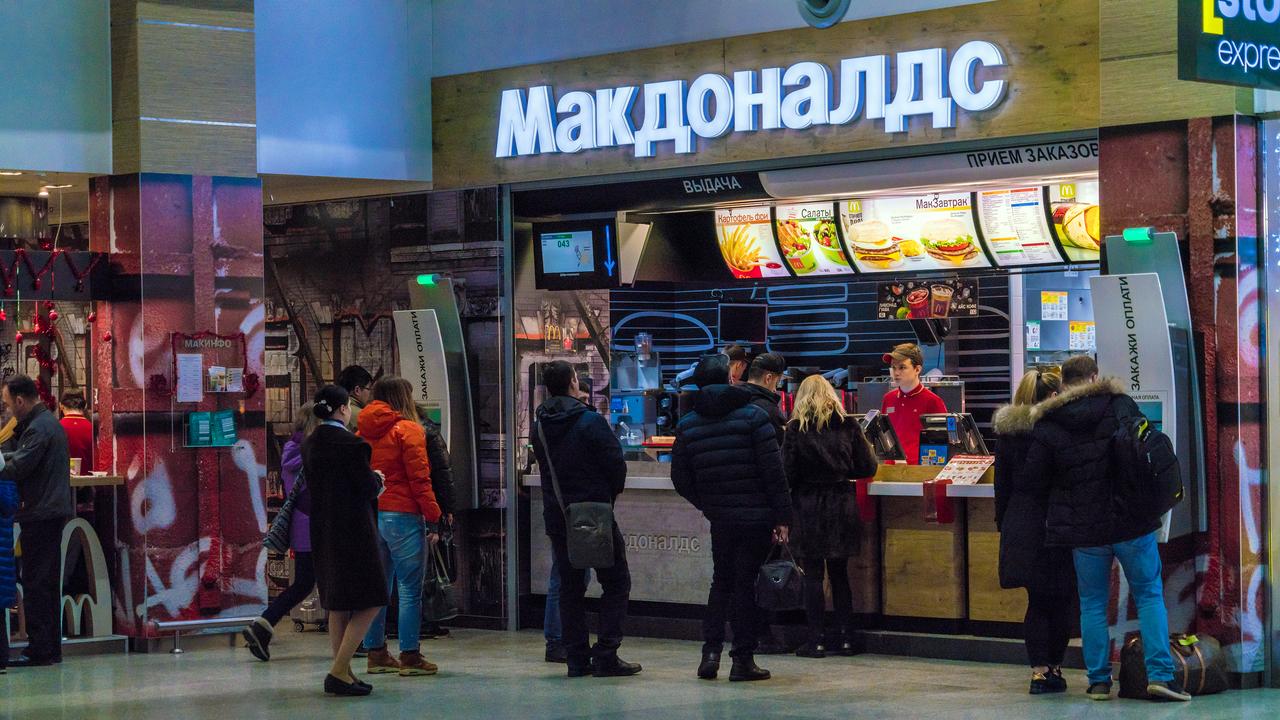Macca’s masterstroke that could end the war
The decision by McDonald’s to shut its 850 restaurants in Russia may be the geopolitical masterstroke the world has been looking for to end the conflict.
It tells you everything you need to know about the 21st century that the most powerful soldier in the war in Ukraine could end up being Ronald McDonald.
Believe it or not, the decision by McDonald’s to shut down its 850 restaurants in Russia may well be the geopolitical masterstroke the world has been looking for to end the conflict.
Before you collapse to the ground laughing – or race to the nearest drive-through – consider this.
There is actually a thing in the world of international relations colloquially known as “the McDonald’s doctrine” or, as it was originally grandly termed, the “Golden Arches Theory of Conflict Prevention”.
The concept was coined by author Thomas Friedman in a column for The New York Times, and while it was originally somewhat tongue in cheek, it has come to be a touchstone for globalisation.
Friedman did a back-of-a-beer coaster analysis of foreign relations in 1996 and came to the realisation that no two nations which had McDonald’s restaurants had ever gone to war with each other – something McDonald’s head office happily confirmed at the time.
The idea he extrapolated from this was that by the time nations had Westernised and developed enough to warrant the establishment of the burger chain, their citizens were less likely to be motivated by nationalistic anger and more likely to be defined by middle-class aspiration.
In other words, they lost their appetite for war and developed an appetite for Big Macs.
Lest we think this too ridiculous, consider the scenes in Russia after McDonald’s announced its snap shutdown.
Rather than raining Molotov cocktails on franchisees to defend the honour of the erstwhile Soviet empire, Russians instead queued for hours in a desperate attempt to get their final fix of freedom fries.

And let us not forget this is how the Iron Curtain fell in the first place. Despite all the nukes and all the espionage, despite Korea and Vietnam – both ties, if you ask the Americans – the Cold War wasn’t won by any military victory.
It was won because East Germans wanted Levi jeans and rock’n’roll. In fact they wanted the latter so much they didn’t even care that it came from David Hasselhoff.
Meanwhile there were conspicuously few Westerners flooding into the east because they had a craving for communism and borscht.
This is the great inconquerable strength of the West – not its military firepower but its culture. A culture of freedom to speak, freedom to vote and freedom to move.
And also freedom to buy, that most pure capitalistic expression of freedom of choice. That’s why East German teens used to pay up to $US500 for a black market pair of American jeans.
As the former Labor policymaker and union heavyweight Misha Zelinsky said to me recently: “They voted with their feet.”
A few days later, after a bruising and high-profile preselection defeat, Zelinsky was on a plane to Ukraine.
Ukraine, as it happens, has 20 McDonald’s restaurants – all of them, unsurprisingly, “temporarily closed”. But it is now officially 20 more than Russia has in the world of McDiplomacy.
And this brings us back to the problem besetting Russian President Vladimir Putin as he wades ever further into a military and economic quagmire.

There is no doubt Russia can destroy Ukraine if it wants to, but it is increasingly clear that it will likely destroy itself in the process, not physically but socially and economically.
Ukrainians at least know what they are fighting for – their homes, their families and their lives. What does the average Russian think when he can no longer buy a Coke or max out his MasterCard and the few rubles in his pocket lose their value by the day? Does he think it’s all worth it for restoring the glory of the former Soviet Union? Do the oligarchs think their lost billions were well spent?
Had former Soviet citizens never sucked on a thickshake or monopolised their millions they would perhaps be more easily convinced of the evils of the West and the need to sacrifice their gains on the altar of Mr Putin’s megalomania. But the new Russia is built on such trappings.
And so the Russians are being torn between nationalism and individualism, love of country versus love of Coca-Cola. Their patriotism can only come at the expense of everything else they are now used to.
The Ukrainians don’t have to make that choice. They can fight to the death for their homeland and know the whole world will forever furnish them with everything – apart from soldiers.
As a result, they might lose battles and bodies, but win what is becoming a long and broad multidimensional war.
Because that’s the annoying little catch of dictatorship: It is easy to stop people acquiring freedom but much harder to take it away. Like a heroin hit or a Happy Meal, once you’ve had a taste, it becomes quite addictive.
Watch Joe’s new show The Blame Game – 8.30pm Fridays on Sky News or stream on demand at flashnews.com.au






